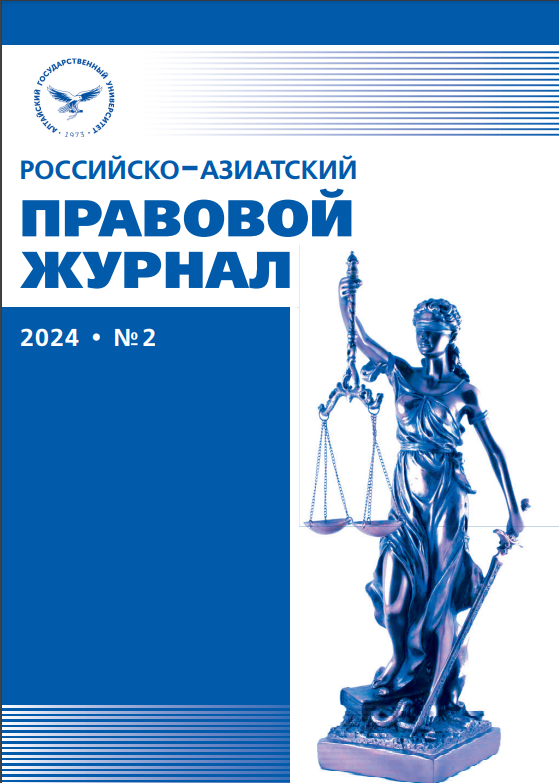REGULATION OF WORKING TIME IN RUSSIA AND EUROPEAN COUNTRIES: LEGAL ASPECT
Abstract
The article is devoted to the comparative legal characteristic of legal regulation of working time in thelaw of the Russian Federation and foreign countries (on the example of European countries). Working timeis one of the institutes of the Russian labor law, which determines the types and modes of working time.Within the framework of this article the legal regulation of working time is analyzed on the example of suchEuropean countries as Great Britain, Germany, France, Denmark, Switzerland.
Downloads
References
Трудовой кодекс Российской Федерации: Федеральный закон от 30 декабря 2001 г. №197-ФЗ (ред. от 23.06.2023) // Собрание законодательства РФ. 2002. №1 (часть I). Ст. 3.
Водянова А.Е., Бурханова Ю.И. Рабочее время и время отдыха по законодательству России и Франции: сравнительный анализ // Актуальные вопросы устойчивого развития России в исследованиях студентов. 2019. С. 192–194.
Горловская Е.А. Правовое регулирование рабочего времени в российском законодательстве // Аллея науки. 2018. №5 (21). С. 832–835.
Попов С.В., Драбина Т.В. Сравнительный анализ некоторых аспектов института рабочего времени в трудовом законодательстве Российской Федерации и федеративной республики Германии //Синергия наук. 2019. №36. С. 484–491.
Copyright (c) 2024 Ю.С. Гусакова, А.А. Сафонов

This work is licensed under a Creative Commons Attribution 4.0 International License.
Russian-Asian Law Journal is a golden publisher, as we allow self-archiving, but most importantly we are fully transparent about your rights.
Authors may present and discuss their findings ahead of publication: at scientific conferences, on preprint servers, in public databases, and in blogs, wikis, tweets, and other informal communication channels.
Russian-Asian Law Journal allows authors to deposit manuscripts (currently under review or those for intended submission) in non-commercial, pre-print servers such as ArXiv.
Authors who publish with this journal agree to the following terms:
- Authors retain copyright and grant the journal right of first publication with the work simultaneously licensed under a Creative Commons Attribution License that allows others to share the work with an acknowledgement of the work's authorship and initial publication in this journal.
- Authors are able to enter into separate, additional contractual arrangements for the non-exclusive distribution of the journal's published version of the work (e.g., post it to an institutional repository or publish it in a book), with an acknowledgement of its initial publication in this journal.
- Authors are permitted and encouraged to post their work online (e.g., in institutional repositories or on their website) prior to and during the submission process, as it can lead to productive exchanges, as well as earlier and greater citation of published work (See The Effect of Open Access).








